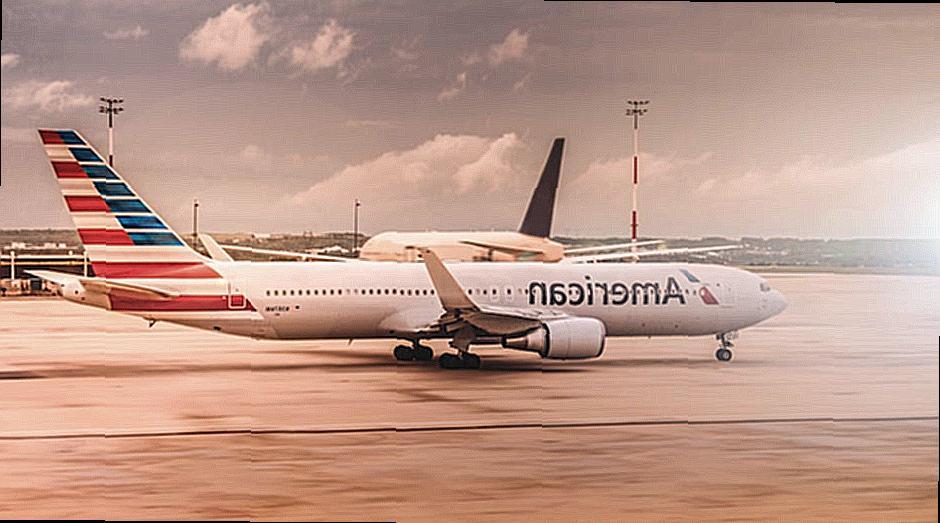Building clinical skills is a crucial aspect of becoming a successful nurse practitioner, especially in the context of travel nursing. As a travel nurse practitioner, you must be equipped with a vast range of clinical skills that can help you adapt to different healthcare settings and patient populations.
Many may wonder if it is possible to become a travel nurse practitioner without any prior clinical experience or additional training. While it may not be impossible, it is highly recommended that nurse practitioners develop their clinical skills before embarking on a travel nursing career.
Clinical skills such as physical assessment, differential diagnosis, treatment planning, and patient management are essential components of a nurse practitioner’s role. It’s crucial to develop these skills as a foundation, which can later be applied in various healthcare settings.

Moreover, traveling nurse practitioners often work in rural or underserved areas, where they may encounter complex and diverse patient conditions. Therefore, it’s crucial to have an in-depth understanding of patients’ medical conditions, including their social and cultural backgrounds, to provide comprehensive care.
In conclusion, building clinical skills is an essential aspect of becoming a successful travel nurse practitioner. It provides the necessary knowledge and expertise to adapt to different healthcare settings and effectively address patients’ needs.

Treatment Planning
Treatment planning is a crucial aspect of nursing practice. It involves the development of a comprehensive plan of care for patients, which includes a range of interventions designed to improve their health outcomes. As a travel nurse practitioner, developing treatment plans is an essential aspect of your role. You must work closely with patients and their families to understand their healthcare needs and develop a plan that is appropriate for their specific circumstances. Treatment plans may include a range of interventions, such as medication management, education, and counseling sessions.
In order to provide the best possible care, travel nurse practitioners must have a deep understanding of treatment planning, as well as the ability to identify appropriate interventions for each patient’s unique needs. Good communication and collaboration with other healthcare professionals are also essential. By working closely with patients and their families, travel nurse practitioners can help to ensure that they receive the best possible care.
For an unforgettable experience, learn how to travel to Churchill Manitoba and try dog sledding adventures.
Communication Skills
Communication skills are an essential requirement for anyone who wishes to become a travel nurse practitioner. As a travel nurse, you will find yourself working in different environments with various healthcare professionals, patients, and their family members. Being able to communicate effectively with all these people is key to your success.
Excellent communication skills are needed in order to fully understand and interpret the medical histories of patients. You will need to be able to listen carefully to patients, their concerns, and their needs, and communicate effectively with them in order to provide appropriate care.
Communicating with other healthcare professionals is equally important. Travel nurse practitioners need to work collaboratively with physicians, nurses, and other healthcare providers. They must be able to clearly and accurately communicate patient information, treatment plans, and progress to all members of the healthcare team.
Finally, travel nurse practitioners must have excellent communication skills when dealing with patients’ families. Often, family members are anxious and worried about their loved ones’ health, and it is the travel nurse practitioner’s task to reassure them, answer any questions or concerns, and communicate any changes in the patient’s condition in a compassionate and empathetic way.
In conclusion, communication skills are crucial for a successful career as a travel nurse practitioner. Communication with patients, healthcare professionals, and families is an essential part of providing quality care to all patients.
Time Management
Time management is an important skill for travel nurse practitioners. As a travel nurse practitioner, you will have a busy schedule that requires you to manage your time efficiently. You will need to prioritize your tasks and plan your day accordingly. This will help you complete your work on time and avoid any delays or missed deadlines. It is also important to take breaks and allocate time for self-care to avoid burnout.
To manage your time effectively, create a schedule that outlines your tasks for the day or week. Use a calendar or planner to keep track of important dates and deadlines. Make sure to allocate enough time for each task and prioritize them based on their urgency. Avoid multitasking, as it can decrease productivity and increase stress.
To budget for transportation expenses on your trip, consider researching how much does it cost to travel to Guatemala. This will help you plan your expenses and ensure that you have enough funds for transportation. You can also consider carpooling or using public transportation to save money.
Overall, time management is an important skill for travel nurse practitioners. By prioritizing your tasks, creating a schedule, and taking breaks, you can manage your time effectively and provide high-quality patient care.
Cultural Competency
Cultural competency refers to the ability to understand, appreciate, and interact effectively with individuals from different cultural backgrounds. As a travel nurse practitioner, cultural competency is crucial as you may provide care to patients of diverse cultural identities.
To be culturally competent, it is essential to have an understanding of the patient’s culture, beliefs, practices, and values. This includes understanding how these factors may influence their health and healthcare decisions. To effectively care for patients from diverse cultural backgrounds, you must have excellent communication skills. Active listening and the ability to ask culturally sensitive questions are vital to ensure patients understand their care plan.
Cultural competency also requires sensitivity and respect towards different cultural values and beliefs. Being non-judgmental and avoiding assumptions about patients’ values and beliefs is essential for building trust with patients.
As a travel nurse practitioner, being culturally competent means being open to learning about different cultures and adapting to meet patients’ needs. Your ability to provide culturally sensitive care can impact the patient’s willingness to seek and comply with treatment, ultimately leading to better health outcomes.
Self-Assessment And Reflection
Self-assessment and reflection are critical aspects of becoming a successful travel nurse practitioner. Before embarking on this career path, it is essential to evaluate your skills, experiences, and knowledge base to ensure that you are well-equipped to handle the challenges that come with traveling and working in different healthcare settings.

Self-assessment involves taking an honest look at your strengths and weaknesses, as well as your personal and professional goals. By evaluating your skills and expertise, you can determine the areas in which you need to improve before venturing into the travel nursing field.
Reflection, on the other hand, involves contemplating your experiences, successes, and failures as you work as a travel nurse practitioner. By reflecting on your endeavors, you can identify areas that need improvement and take steps to enhance your skills and knowledge.
In conclusion, self-assessment and reflection are crucial aspects of becoming a successful travel nurse practitioner. It requires self-awareness, honesty, dedication, and hard work to continuously evolve and thrive in this field. By consistently assessing and reflecting on your experiences, you can grow both personally and professionally to provide quality healthcare services to your patients.
Flexibility And Adaptability
Flexibility and adaptability are crucial qualities for any travel nurse practitioner. As a travel nurse, you will be required to adjust to new environments, work with different healthcare teams and adapt to varying patient needs and cultural practices. You must be willing to be flexible with your schedule, location, and work conditions to successfully provide care in different settings.
Adaptability is significant in the context of travel nursing since the healthcare needs of patients vary from location to location. It requires a nurse to build a rapport with the community members, patients and healthcare providers to provide the best care possible. A travel nurse must stay informed with the latest advancements and techniques in the nursing profession to be adaptable.
Moreover, flexibility is critical because of the changing nature of the role. Travel nurses must learn to work with different clinical tools, charts, and electronic health records. They must stay up-to-date with licensure, accreditation, and regulatory requirements. As a travel nurse, you must also have an open mind and be willing to learn and try new approaches to caregiving.
In conclusion, flexibility and adaptability are invaluable traits for travel nurse practitioners. Being open-minded and adapting to new situations and environments enables travel nurses to provide the best care possible for their patients, regardless of the location or setting.
Documentation And Record-Keeping
Documentation and record-keeping are crucial aspects of being a competent travel nurse practitioner. As a travel nurse, it is vital to maintain accurate documentation of patient care to ensure continuity of care and compliance with regulatory standards. Documentation often involves recording patient vital signs, medications, treatments, and interventions. As a result, it is essential to keep detailed and organized patient records to provide safe and effective care.

Adjusting to new environments can be tough, but as a local travel nurse, you can make the transition easier by following the best tips on how to be a local travel nurse. Maintaining good documentation and record-keeping practices can ensure that you do not overlook any critical aspects of patient care, reduce the risk of errors, and demonstrate professionalism in your work. Besides, keeping accurate records of your nursing activities will help you collaborate with other healthcare workers, assess patient outcomes, and provide relevant data to your employer or partners. Thus, documenting and record-keeping are essential practices for travel nurse practitioners to ensure high-quality care and protect patient safety.

Coordination Of Care.
Coordination of care is an essential aspect of nursing practice, particularly in the travel nurse practitioner role. As a travel nurse practitioner, you will often find yourself working with different healthcare teams and medical facilities, each with their own unique approaches to patient care. Coordinating care involves effectively communicating with these teams, ensuring that each patient’s medical needs are met, and facilitating the delivery of high-quality care.
In practice, coordination of care involves several steps. The first step is to establish a clear and comprehensive understanding of each patient’s medical history, medications, and treatment plans. This information gathering process helps the nurse practitioner identify potential inconsistencies or gaps in care that need to be addressed.
The second step involves communicating with the healthcare team to ensure that all members are working together efficiently and effectively. This may involve coordinating care plans, providing updates on patient progress, and facilitating the hand-off of care between medical facilities.
Ultimately, coordination of care helps ensure that each patient receives the highest quality of care possible, no matter where they are receiving treatment. As a travel nurse practitioner, effective coordination of care is critical to success in the role and to delivering optimal health outcomes for patients.
Parting Words
In conclusion, becoming a travel nurse practitioner is a realistic career path for those who have completed the necessary education and gained experience in the field. Although it may require some additional credentials and certifications, the flexibility and opportunity to work in diverse settings can make it an attractive option for healthcare professionals who love to travel and want to make a positive impact on patient care across the country.
To become a travel nurse practitioner, the first step is to obtain a degree in nursing and specialize in a specific area such as family medicine, pediatrics, or gerontology. Once you have gained enough clinical experience and knowledge, you can apply for a Nurse Practitioner (NP) program, which usually takes 2-3 years to complete. After graduation, you will need to pass the national certification exam in your specialty area to become a certified nurse practitioner (CNP).
To work as a travel nurse practitioner, you will also need to obtain a state nursing license and maintain it in the states where you wish to work. Some states also require additional certifications or licenses for nurse practitioners, so it is important to research and comply with each state’s regulations.
In addition to the education and licensing requirements, travel nurse practitioners must possess strong communication and organizational skills, adaptability, and a willingness to work in a variety of healthcare settings. They also need to be comfortable working independently and have a good understanding of their scope of practice and ethical responsibilities.
Overall, being a travel nurse practitioner can offer many benefits, such as competitive pay and benefits, the chance to work in new and exciting settings, and the opportunity to make a difference in patient care across the country. While it may require additional effort and qualifications, the rewards can be well worth the investment for those passionate about nursing and exploration.



